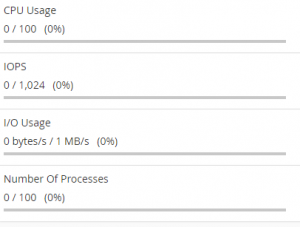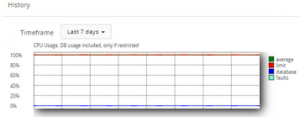“What is the difference between a shared hosting plan with LVE limits and a KVM VPS?” is a question many website owners will ask as they search for the hosting solution that suits their needs.
Here’s an overview to help you decide which is best for you.
Shared hosting with Cloudlinux LVE limits
Many web hosting providers use Cloudlinux to make their shared servers more stable and secure. According to its provider, the Cloudlinux software is used on more than 60,000 servers (and hence powers more than 20 million websites) across the globe, with technology called LVE allowing the control and monitoring of resources allocated to clients.
On the shared hosting plan, your account would be assigned LVE resources, such as CPU Usage, IOPS, I/O Usage and Number of Processes. Each has a limit and you cannot exceed those limits.
You can monitor usage from your cPanel account.

Also, your host can see a history of your account’s usage from the WHM LVE Manager.

If your website is loading slowly and spooling for a long time, it may be an indication that your account’s resources need upgrading.
KVM VPS hosting for reliability and performance
When it comes to a VPS, all of the server’s resources are dedicated to your portfolio of websites (assuming it’s a KVM VPS and the host doesn’t oversell cores). If you opt for OpenVZ instead of KVM virtualisation, each VPS instance doesn’t have its own kernel. With KVM virtualisation, each VPS has its own kernel, which is what you want.
If it’s an unmanaged VPS, you will be able to set up via root access your own webserver such as Apache, NGINX or Litespeed, control panel such as cPanel or DirectAdmin, and security platform such as Imunify 360, CXS or maldet.
If you’re hosting a lot of sites from your VPS, you might opt to use Cloudlinux to define hosting packages with LVE limits. You might also choose to use Cloudlinux to make your server more stable and profitable.
If it’s a managed VPS, the flexibility you have will depend on the host that is managing the service for you. They may or may not provide you with root access.
In conclusion, there’s no doubt that you have more power, control and flexibility with a VPS but it depends on the provider you choose and whether you opt for a managed or unmanaged solution.
If you’re not sure of your needs, contact Zen Hosting.
Thanks for reading!
The Zen Hosting team
